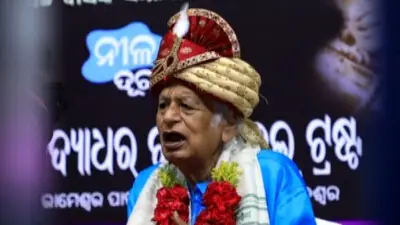Recommended Stories
"You cannot say that an army man can enter any home commit a rape and say he enjoys immunity as it has been done in discharge of official duties," the apex court remarked. The apex court made the remarks after senior counsel Ashok Bhan, appearing for the Centre, voiced divergent views on two separate encounter killings involving military personnel in J&K and Assam.
In the 2004 Chattisingpora killing in J&K, where seven youth were killed in an alleged fake encounter by Rashtriya Rifles personnel, Bhan sought prosecution of the armymen whereas in a similar alleged fake encounter by CRPF men in Assam, the counsel said they enjoyed immunity.
"How can you adopt diametrically different views?" the bench said, to which Bhan admitted it was "compulsions of his professional duties."
He urged the court to de-link the two issues and deal with them separately.
However, the bench said since "the issue involved vital questions of law relating to public", the matter would be taken up for a detailed hearing immediately after vacation.
The court asked the government to clearly spell out its stand on two issues: whether army/para military personnel enjoy immunity from criminal prosecution for any penal offence committed in discharge of their official duties including fake encounters and rapes vis-a-vis AFSP Act, Section 197 CrPC and Section 17 of the CRPF Act.
Should the investigating agency like CBI conduct a preliminary inquiry into such killings before registering an FIR against accused army/ para military personnel?
Bhan took the stance that the army men responsible for the killing of seven youths should be prosecuted as Section 6 and 7 of the AFSP Act gave no immunity for prosecution to such personnel.
However, in the case of seven CRPF men, who allegedly killed six youth after branding them ultras on April 2, 1983, at Golghat, Assam, the counsel took the plea that the accused officials cannot be prosecuted as they enjoyed immunity under Section 17 of the CRPF Act and 197 CrPC which mandates prior sanction from higher authorities.
The counsel urged the apex court to vacate the stay granted by it in 2009 on the prosecution of the army personnel in Chattisinghpora incident so as "to instill confidence among the people of militancy-hit J&K which is witnessing violence for the last two decades."
The Chattisinghpora incident had provoked an outrage after CBI established that the victims were abducted by the army men and shot dead in a fake encounter in retaliation to the massacre of 36 Sikhs by militants a few days before the encounter.
CBI had filed the charge sheet against a Brigadier, Colonel, Major and five others. The sessions court and the High Court had rejected the plea of the army personnel for stay of the prosecution by the apex court in 2007 stayed the trial.
CBI filed an application in 2009 for vacating the stay which was listed for hearing along with the case relating to a similar encounter killing by CRPF personnel in Assam.
PTI ‘China`s Brahmaputra plans not worrisome’ US refrains from identifying Pak as ally Washington: The White House has said that Pakistan is a partner of the United States, but refused to identify it as an ally, a term commonly used by the US officials in the past.
When pointed out by reporters at his news briefing, White House Press Secretary Jay Carney termed it as diplomatic nuances.
"I think there are diplomatic nuances between these words. The important thing is Pakistan has been an important partner. It is a relationship that we work very hard on. We candidly acknowledge that it is complicated. It is difficult.
But it is very important," Carney said when asked if partner is different than ally.
"Pakistan is a partner of the United States, an important partner in fighting terrorism, fighting the terrorists who in that region plotted the attack on the United States on September 11th of 2001," he said when asked why he did not use the word "ally" for Pakistan responding to questions about this South Asian country.
"I think it`s a complicated relationship that is not perfect and that requires a lot of attention. We give it that attention because it`s important to do that. It`s important to our national security interest to do that," he said.
"I`m not going to give percentage assessments or one-to-10 assessments of the level of cooperation. I would note that in the wake of that (bin Laden) operation, which obviously a major development was and there was a reaction to it, we have worked hard to continue the cooperation that’s important. We have received some cooperation from Pakistan continuing since the bin Laden mission," he said.












